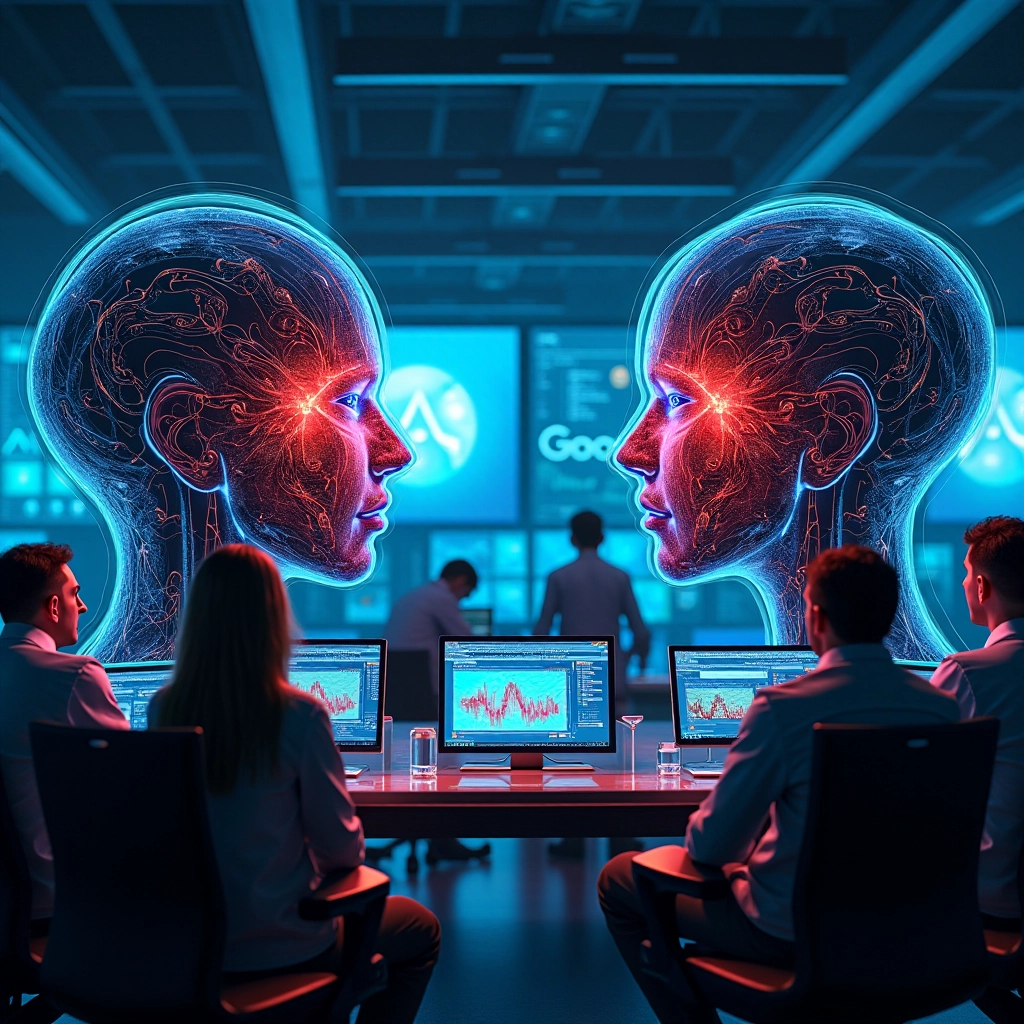
Anthropic vs. Google: Battling AI Hallucinations in Cutting-Edge Technology
Artificial Intelligence (AI) is revolutionizing various sectors, from healthcare to finance, and even day-to-day consumer applications. However, the powerful capabilities of AI come with unique challenges, one of which is AI hallucinations. These are situations where AI systems generate incorrect or nonsensical information, which can have serious implications. Today, we delve into how two tech giants, Anthropic and Google, are combating AI hallucinations to make AI safer and more reliable.
Understanding AI Hallucinations
AI hallucinations occur when machine learning models generate outputs that are not a direct reflection of the input data. These responses can be completely baseless and are often observed in natural language processing (NLP) models. The phenomenon can range from minor errors, such as naming misalignments, to significant issues like fabricating non-existent facts.
The Importance of Reliable AI
The credibility of AI systems is paramount, especially as they become more integrated into critical decision-making processes. Imagine an AI advising a medical treatment that doesn’t exist or a financial algorithm creating false trends. Such hallucinations can result in misinformation, leading to potentially catastrophic consequences.
Anthropic’s Approach to Combatting AI Hallucinations
Anthropic, an AI safety and research lab, is on a mission to develop interpretable and steerable AI systems. They focus on reducing the risk of AI systems producing unwanted or harmful behavior, including hallucinations.
Key Techniques Used by Anthropic
Anthropic employs various strategies to mitigate AI hallucinations. These include:
- Human Feedback: Incorporating human oversight in the training process to steer the AI’s learning in the right direction.
- Robust Training Data: Ensuring the training data is accurate and representative of real-world scenarios to minimize the chances of incorrect outputs.
- Model Interpretability: Creating models that are not only accurate but also interpretable, so developers can understand how decisions are being made.
Google’s Strategies to Address AI Hallucinations
Google, a leader in AI technology, also has initiatives to minimize the occurrence of AI hallucinations. They are leveraging their extensive resources and research capabilities to bring more reliability to their AI models.
Google’s Methodologies
Google uses a combination of advanced techniques and robust protocols to ensure their AI models are both accurate and reliable:
- Advanced Training Methods: Utilizing techniques like transfer learning and data augmentation to improve model robustness.
- Continuous Monitoring: Implementing real-time monitoring to quickly identify and mitigate any hallucinations that occur during an AI’s deployment.
- Comprehensive Testing: Conducting extensive testing and domain-specific adjustments to ensure the models are not just theoretically sound but practically reliable.
Comparative Analysis: Who Is Leading the Battle?
Both Anthropic and Google are making significant strides in addressing AI hallucinations, albeit with different approaches. While Anthropic focuses heavily on the interpretability and steerability of their models, Google leverages its vast resources for comprehensive testing and advanced training techniques.
Strengths of Anthropic
Anthropic’s emphasis on human feedback and model interpretability sets it apart. By ensuring models are understandable, they enable developers to pinpoint and correct the sources of hallucinations more effectively.
Strengths of Google
Google’s extensive testing protocols and advanced methodologies provide a robust framework for minimizing AI hallucinations. Their continuous monitoring system ensures that any erroneous outputs are quickly identified and addressed, making their AI systems highly reliable in real-world applications.
The Future of AI Hallucination Mitigation
The battle against AI hallucinations is ongoing, with both Anthropic and Google making commendable progress. As AI continues to evolve, it is crucial for these tech giants to refine their approaches, combining interpretability, human feedback, and advanced techniques to build safer and more reliable AI systems.
Collaborative Efforts
In addition to their individual efforts, collaboration between AI researchers and organizations can significantly accelerate the development of solutions to combat AI hallucinations. Sharing knowledge and best practices can lead to more holistic and effective strategies.
AI Ethics and Governance
Ensuring that AI systems are ethical and governed by robust frameworks is essential. Regulatory bodies must work closely with tech companies to establish standards that minimize the risks associated with AI hallucinations while promoting innovation and growth.
In conclusion, both Anthropic and Google are at the forefront of addressing AI hallucinations, each contributing uniquely to the field. By continuing to innovate and collaborate, we can look forward to a future where AI systems are not only powerful but also trustworthy and accurate, ultimately benefiting society as a whole.